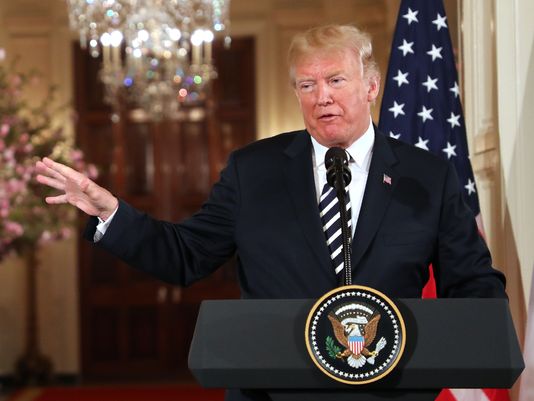WASHINGTON — President Trump has denied clemency for 180 people who had applied for pardons and commutations through formal Justice Department channels— even as he’s short-circuited that process to pardon political allies.
The denials, decided last week, represent the first movements in the Justice Department’s clemency caseload since Trump was inaugurated last year, according to the Office of the Pardon Attorney.
Among those denied clemency: Anthony Calabrese, a 57-year-old reputed mob hit man from Chicago convicted of three robberies and sentenced to 62 years in prison. He had requested compassionate release after being diagnosed with terminal cancer.
One White House official, speaking on condition of anonymity because officials were not authorized to comment publicly, said the denials were “routine” and that no accompanying clemency grants were expected in the near future. The official said the cases did not meet the president’s “high standards” for clemency.
That kind of clemency housekeeping is common. The last three presidents — Bill Clinton, George W. Bush and Barack Obama — all denied hundreds of applications in their first two years before granting their very first pardons and commutations.
But three days before Trump rejected a batch of pardon applications, he granted one to someone who hadn’t applied for one: Scooter Libby, the former Bush administration aide convicted of lying to the FBI in a probe involving the leak of classified information.
Trump’s other pardons — for Arizona Sheriff Joe Arpaio and former Navy submariner Kristian Saucier — came in highly politicized cases that also circumvented the formal process for granting pardons. That process includes an FBI background check and recommendations from prosecutors.
Because the president’s power to pardon comes from the Constitution, he’s not required to go through that process.
Last week’s denials included 82 applications for pardons and 98 for commutations. Pardons represent a full legal forgiveness for a conviction, restoring civil rights taken away by a felony conviction. Commutations shorten a prison sentence but leave the other consequences intact.
Surce:usatoday.com
What do you think? Scroll down to comment below!

